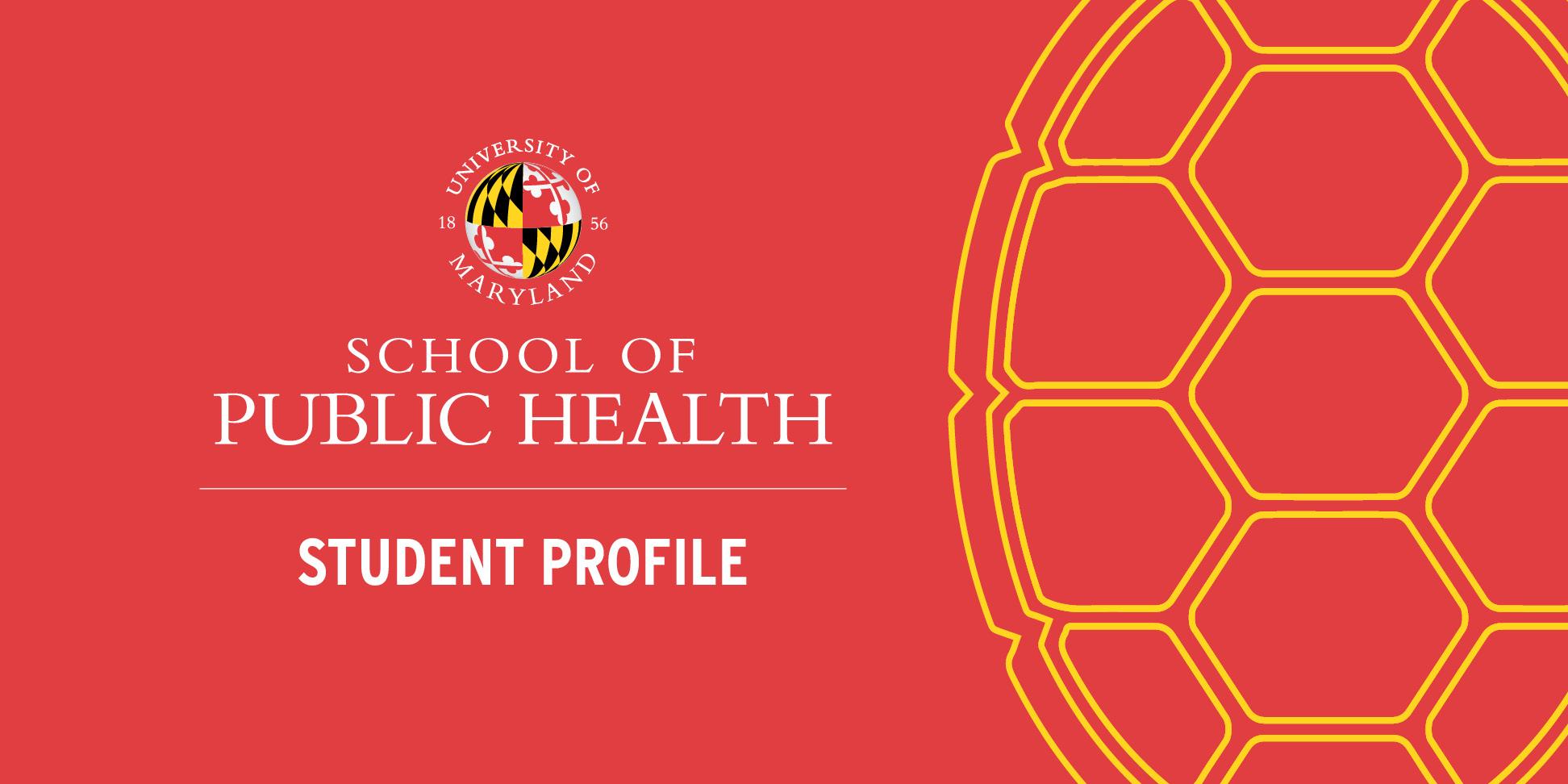
Bridgette Heine
Master of Public Health, Biostatistics
Bridgette Heine is a graduate assistant for the Teaching and Learning Center in the College of Computer, Mathematical and Natural Sciences (CMNS). She is also a research assistant for Dr. Hongjie Liu in the Epidemiology and Biostatistics Department, where she is working on two projects. The first is modeling Covid-19 in a university setting by looking at how different research groups have modeled Covid in other settings and then applying those later to a university setting. The second one looks at intersectional stigma and how people quantitatively research intersectional stigma.
During Summer 2020, Heine completed an internship with the Montgomery County Department of Health and Human Services’ Planning and Epidemiology Department. Part of her role was to put together the index of disparity for the County’s health equity report that is released every two years using aggregated data.
In one sentence, what is public health to you?
Public health is putting health care data in an understandable and cohesive way for public health professionals to understand and act on and for the general population to understand.
What inspired you to study public health, and particularly, at UMD?
My undergrad background is in biology, and I also have a minor in math. I did a lot of research during undergrad like wet-lab biology and biochemistry. The parts that I liked were the data analysis. When I was looking at my next steps and when I decided that I didn't want to go the biology route, I looked to combine my two interests of math and biology and biostatistics. I really like how it's applied to everyday problems instead of more theory-based. I like the application to the general population and the fact that you can easily see how what you're working on can help people on a daily basis or further down the line.
I was in the DMV when I was working at the NIH, so I was already familiar with the area. I knew that it was a good place to have job prospects in the future. So there was that aspect of the location with the federal government being close and all those jobs and then having also private jobs close by. When I went to visit UMD, I thought that the professors were really great and really wanted to be involved with helping the students, and I liked how the program was set up to teach the students how to learn in an applied way.
What person or experience has had the greatest impact on you during your degree program?
I would say that Dr. Xin He has had the most impact. I've taken two classes with him, one for each of my two years here, and he's a really great professor if you're not quite understanding what's going on. He’s really good at explaining concepts in different ways and also gives very concrete examples of every concept that we learn. We always study the theoretical approach and then he applies it directly to a real study that he has data for. Something else I really like about his classes is that he thoroughly explains how to use the Statistical Analysis System (SAS). That was something that I really wanted to learn through the program, learning how to program all of the methods that we were doing. He also runs the internship program, which I did, and he was really helpful with doing the paperwork that was necessary.
How has your time at UMD’s School of Public Health shaped your career goals?
I was a little unsure of my career path and what I wanted to do with my master's degree, but I think the classes that I’ve taken have solidified my decision to go into biostatistics. They really helped me to see how biostatistics can be used in a public health lens or environment and how the concepts and ideas of biostatistics can be used in everyday life. It’s helped me to feel more confident in the path that I’m on.
What do you think is the biggest challenge that the public health field should be focusing on?
We all know that Covid-19 is a big issue right now, and I think that the places that fund public health need to focus on how to prevent something like this from happening in the future. There are emergency preparedness programs for lots of infectious diseases, and I think those need to be improved. Right now, as we’re hopefully coming out of the pandemic, there needs to be an additional focus on using the information, all the data that was collected on the spread of the infection and the vaccination to be more prepared for something like this happening. We don’t know if anything like this will ever happen again, right? We have to be prepared for it. We prepare for hurricanes, and we should prepare for infectious diseases. I think that comes with recognizing through a financial lens that public health needs to be funded, and it's an important aspect of our society.